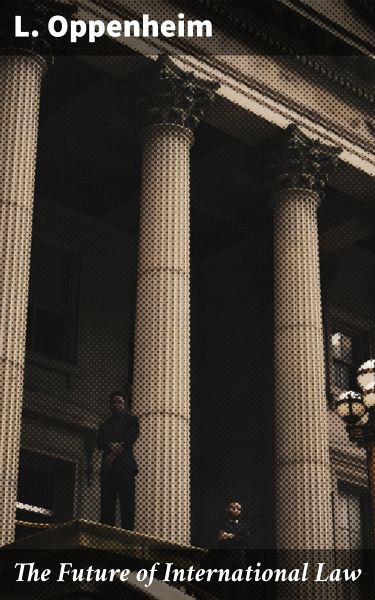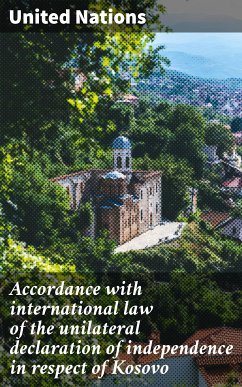
The Future of International Law (eBook, ePUB)
Enriched edition. Navigating the Evolving Landscape of Global Relations
Kommentar: Burton, Maxwell / Redaktion: Good Press

PAYBACK Punkte
0 °P sammeln!
In "The Future of International Law," L. Oppenheim presents a seminal exploration of the evolving landscape of international jurisprudence at the dawn of the 20th century. Employing a clear and analytical prose style, Oppenheim delves into pressing legal issues such as state sovereignty, humanitarian law, and the role of international organizations. His work situates itself in the context of an increasingly interconnected world, grappling with the tensions between national interests and global governance frameworks, thus establishing a foundational text for both theoretical inquiry and pragmat...
In "The Future of International Law," L. Oppenheim presents a seminal exploration of the evolving landscape of international jurisprudence at the dawn of the 20th century. Employing a clear and analytical prose style, Oppenheim delves into pressing legal issues such as state sovereignty, humanitarian law, and the role of international organizations. His work situates itself in the context of an increasingly interconnected world, grappling with the tensions between national interests and global governance frameworks, thus establishing a foundational text for both theoretical inquiry and pragmatic policy discussions. L. Oppenheim, a prominent legal scholar and diplomat, draws upon his extensive experience in both academia and the diplomatic arena, including his tenure at the University of Cambridge. His insights are influenced by the turbulent geopolitical events of his time, particularly World War I, which compelled him to envision a more cooperative international order. This background informs his advocacy for a robust legal architecture to address global conflicts and enforce justice, reflecting his profound commitment to the principles of peace and order. This book is essential for scholars, practitioners, and students of international law, offering a prescient examination of legal frameworks that persist in relevance today. Oppenheim's rigorous analysis and forward-thinking vision make this work a critical resource for understanding the future trajectory of international relations and law. In this enriched edition, we have carefully created added value for your reading experience: - A succinct Introduction situates the work's timeless appeal and themes. - The Synopsis outlines the central plot, highlighting key developments without spoiling critical twists. - A detailed Historical Context immerses you in the era's events and influences that shaped the writing. - A thorough Analysis dissects symbols, motifs, and character arcs to unearth underlying meanings. - Reflection questions prompt you to engage personally with the work's messages, connecting them to modern life. - Hand-picked Memorable Quotes shine a spotlight on moments of literary brilliance. - Interactive footnotes clarify unusual references, historical allusions, and archaic phrases for an effortless, more informed read.
Dieser Download kann aus rechtlichen Gründen nur mit Rechnungsadresse in A, B, BG, CY, CZ, D, DK, EW, E, FIN, F, GR, H, IRL, I, LT, L, LR, M, NL, PL, P, R, S, SLO, SK ausgeliefert werden.













